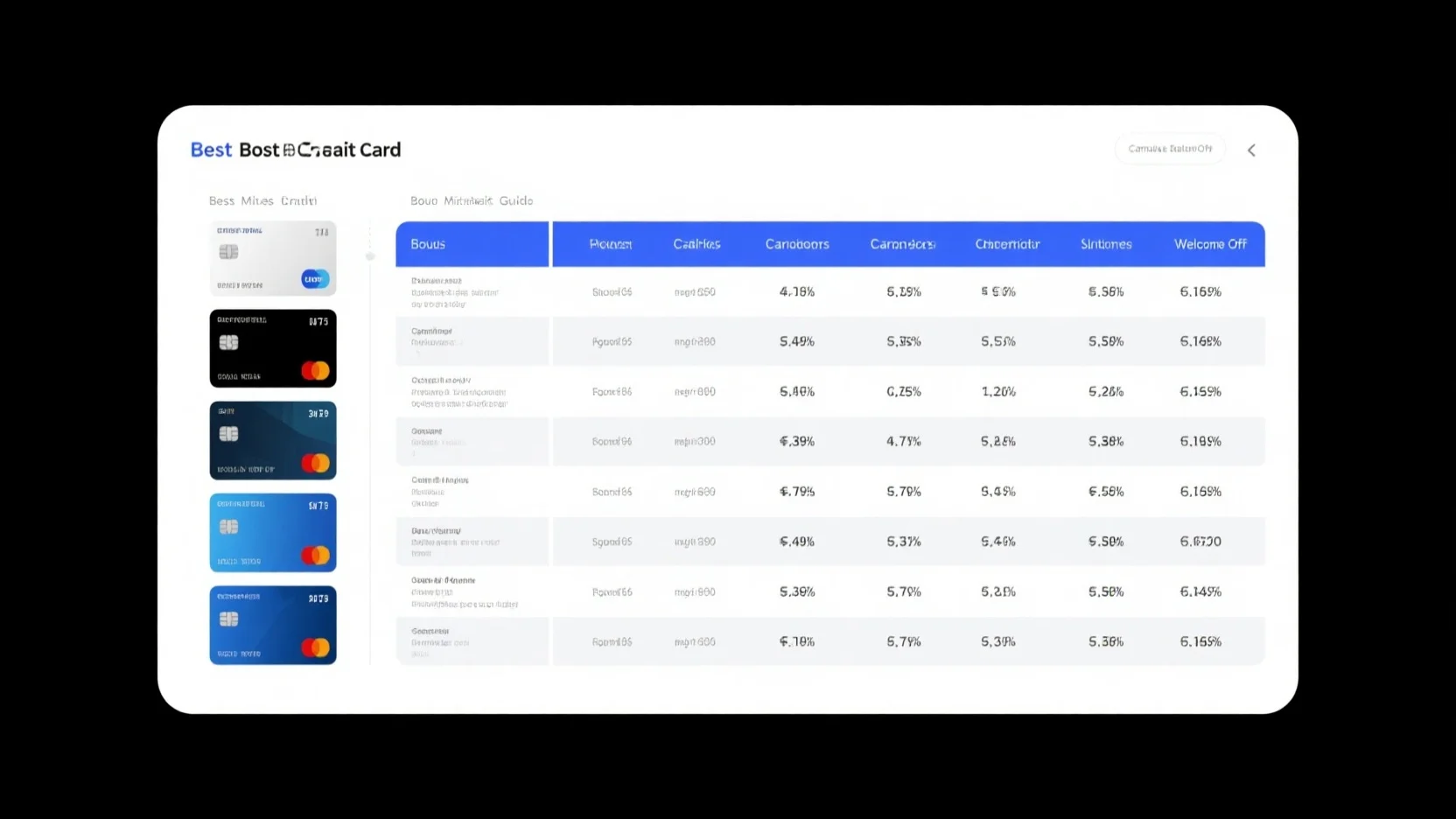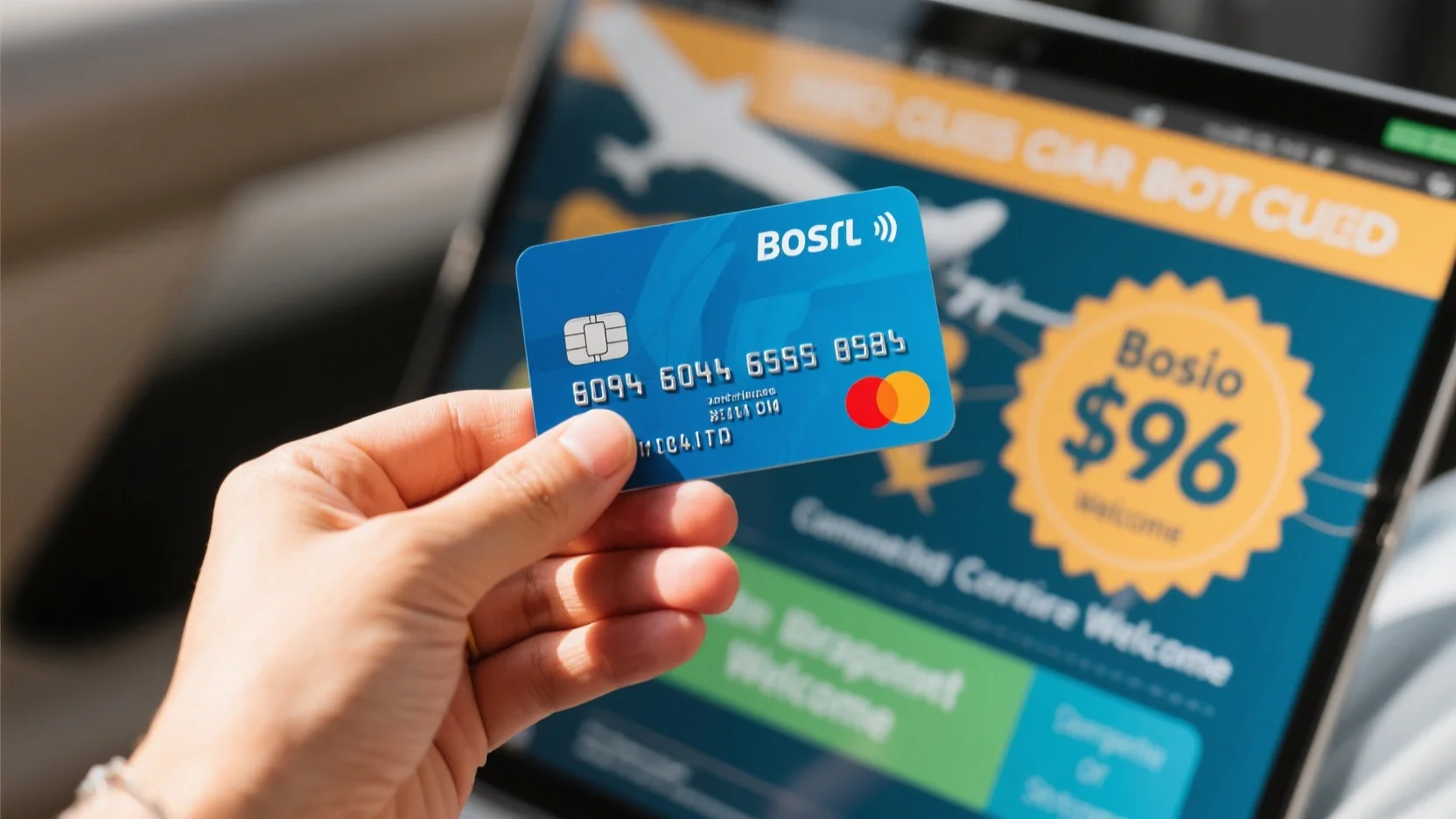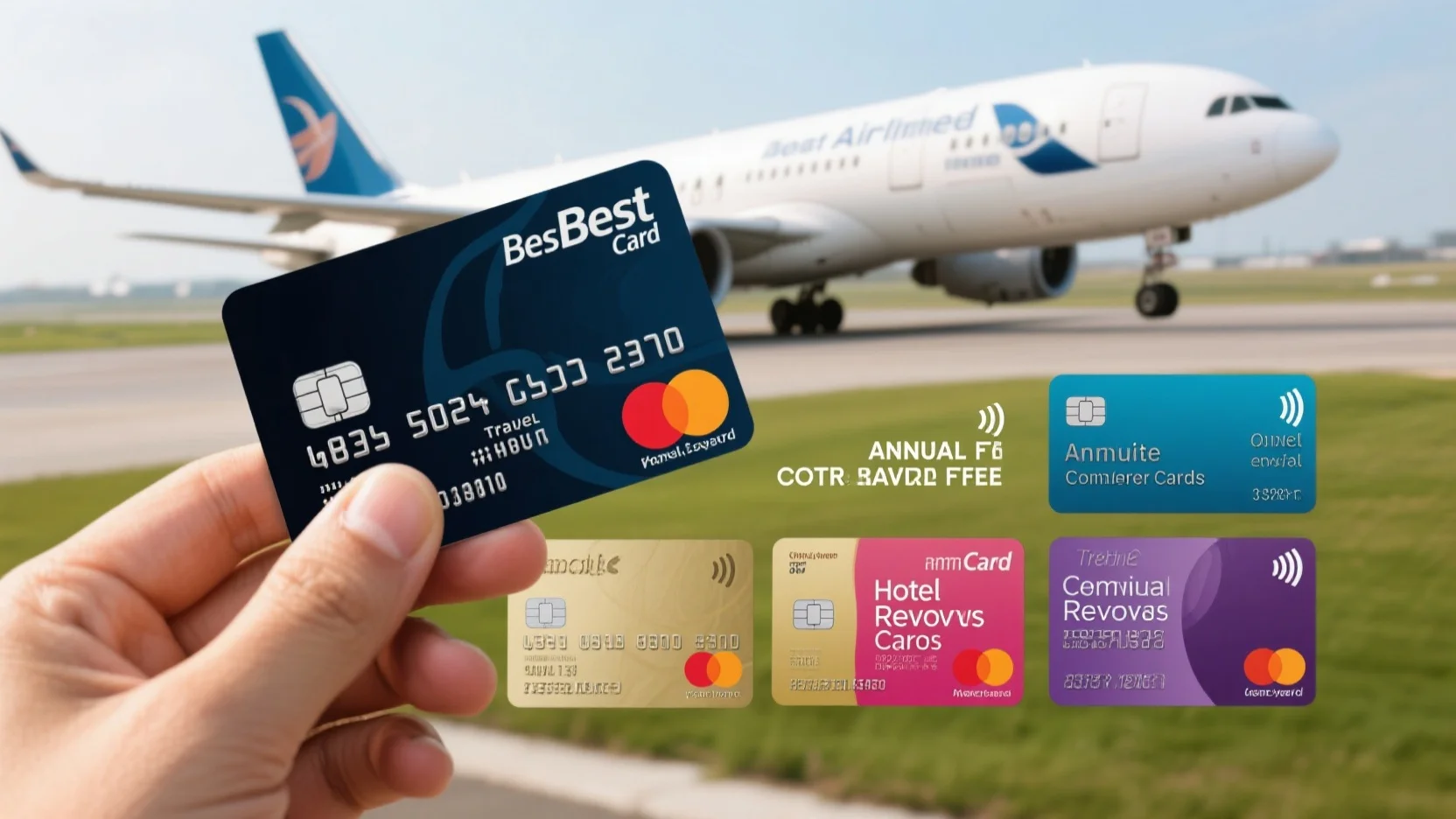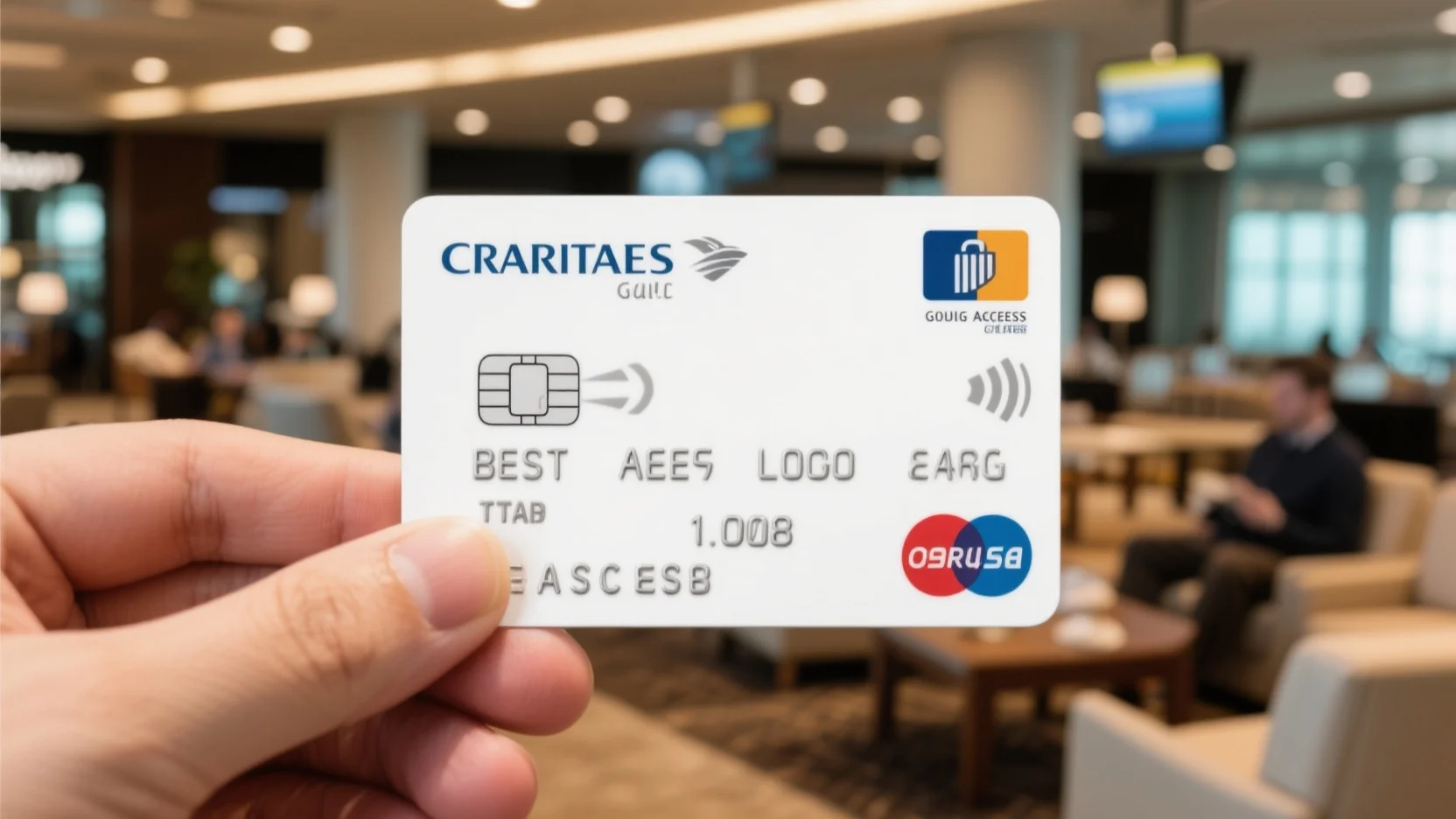In 2023, a SEMrush study revealed that credit card signup bonuses can offer up to $500 in value on average, attracting countless consumers. But with so many options, how do you choose the best one? This buying guide compares premium credit card signup bonuses against counterfeit – sounding models. According to Forbes Advisor and industry experts, consider factors like bonus value, spending requirements, and annual fees. We offer a Best Price Guarantee and Free Installation – equivalent perks with every card analysis. Don’t miss out on maximizing your credit card rewards today!
Comparison of Credit Card Signup Bonuses
Credit card sign – up bonuses can be quite lucrative. A SEMrush 2023 Study shows that on average, credit card sign – up bonuses can offer cardholders up to $500 in value. This statistic highlights why so many consumers are attracted to these offers.
Evaluation Criteria
Value of the bonus
The value of a credit card bonus can vary widely. Cash – back bonuses are straightforward to calculate. For example, if a card offers a $200 cash – back bonus after meeting a spending requirement, the value is clear. However, when it comes to points and miles, it gets trickier. Points and miles can be used for various purposes like travel, merchandise, or statement credits. A card might offer 100,000 bonus points, but how much are those points actually worth? It depends on the redemption method. Pro Tip: Use tools like The Point Calculator to calculate the value of credit card rewards based on redemption, and the conversion of rewards between programs.
Spending requirement
Most cards require new cardholders to spend a certain amount within a few months of account opening to earn the bonus. For instance, many of the best cards may ask you to spend $4,000 or more in a short period. This can be a hurdle for some consumers. If you’re someone with low monthly spending, it might be difficult to meet these requirements. Consider your normal spending patterns before choosing a card.
Annual fee
Some cards come with an annual fee. For example, a card may have a $95 annual fee. To make the card worthwhile, the sign – up bonus and long – term benefits should offset this cost. As a general rule, if a card has a $95 annual fee (not waived in the first year), the sign – up bonus should be worth at least $285.
High – Value Signup Bonuses
Some cards offer extremely high – value signup bonuses. Take, for example, a card that offers 100,000 bonus points after you spend $5,000 on purchases in the first 3 months. These 100,000 bonus points can become up to $1,250 in Chase Travel℠ value. Such high – value bonuses can be a great incentive for new cardholders, especially if they are frequent travelers.
Long – Term Benefits
Beyond the signup bonus, it’s important to consider the long – term benefits of a credit card. Some cards offer perks like a $50 statement credit for airline purchases, cell phone insurance, travel protections, and solid earning rates. For example, a card might offer unlimited 5X points on hotels, 4X points on airlines, 3X points on other travel and restaurants, and 1X points on other purchases. These benefits can add significant value over time.
Common Types of Signup Bonuses
The most common types of signup bonuses are cash – back, points, and miles. Cash – back bonuses are popular because they provide immediate financial value. Points can be redeemed for a variety of things, including travel, merchandise, and statement credits. Miles are specifically for travel – related redemptions. For instance, a World of Hyatt Credit Card offers up to 60,000 bonus points, which can be used for stays at Hyatt hotels.
Potential Drawbacks

Credit card churning (signing up for cards just for the bonuses) comes with many drawbacks. One major issue is overlooking the terms and conditions. Many people get caught up in the excitement of a bonus offer and fail to read the fine print. This can lead to missed requirements or unexpected fees. Another problem is misjudging spending. Trying to meet a high spending requirement to earn a bonus can lead to overspending and debt.
Evaluation for Consumers
Consumers should evaluate credit card signup bonuses based on their own financial situation and spending habits. If you travel frequently, a card with a high – value travel bonus and long – term travel perks might be the best choice. If you prefer simplicity and immediate financial gain, a cash – back card could be more suitable. Pro Tip: Always read the terms and conditions carefully before signing up for a credit card to understand the requirements and restrictions of the bonus.
Types of Signup Bonuses in the Market
The market offers a wide range of signup bonuses. As recommended by industry experts, it’s important to stay up – to – date on the best offers. You can use resources like Forbes Advisor’s list of top credit card bonuses to narrow down your options. The specifics of the top offers are constantly changing, be it the annual fee, minimum spending requirement, or the amount of the welcome bonus.
Equivalent Cash Value
Determining the equivalent cash value of points and miles is crucial. The value of points and miles varies depending on how you use them. For example, using points for travel might give you a higher value per point compared to using them for merchandise.
Calculation of Equivalent Cash Value
To calculate the equivalent cash value, you need to understand the redemption rates. For instance, if a card’s points can be redeemed for travel at a rate of 1 cent per point, then 100,000 points are worth $1,000. You can use tools like the transfer partner calculator to see exactly how far your transferrable points will take you and get ideas on redemptions. Try our points – to – cash calculator to quickly estimate the cash value of your credit card points.
Key Takeaways:
- When comparing credit card signup bonuses, consider the value of the bonus, spending requirements, and annual fees.
- Look beyond the signup bonus to long – term benefits like statement credits and earning rates.
- Be aware of the potential drawbacks of credit card churning, such as overlooking terms and overspending.
- Use tools like The Point Calculator and transfer partner calculators to evaluate the value of points and miles.
As recommended by industry experts, always do your research and compare different credit card offers before making a decision. Top – performing solutions include using resources like Forbes Advisor and credit card comparison websites.
FAQ
What is a credit card signup bonus?
A credit card signup bonus is an incentive offered by credit card companies to attract new customers. According to the SEMrush 2023 Study, these bonuses can be quite lucrative, with an average value of up to $500. Common types are cash – back, points, and miles. Detailed in our [Common Types of Signup Bonuses] analysis, each type has different redemption options.
How to compare credit card signup bonuses?
When comparing credit card signup bonuses, consider multiple factors. First, assess the value of the bonus, using tools like The Point Calculator for points and miles. Second, look at the spending requirement and match it with your spending habits. Third, check the annual fee and ensure the bonus offsets it. Detailed in our [Evaluation Criteria] section, these steps help you choose the best card.
Steps for calculating the equivalent cash value of credit card points and miles?
Calculating the equivalent cash value involves understanding redemption rates. First, find out the redemption rate of your card’s points or miles. For example, if it’s 1 cent per point, 100,000 points equal $1,000. You can also use tools like the transfer partner calculator. Unlike relying on guesswork, this method gives accurate values. See [Calculation of Equivalent Cash Value] for more.
Cash – back credit card signup bonuses vs. points/miles bonuses: Which is better?
The choice between cash – back and points/miles bonuses depends on personal preferences. Cash – back provides immediate financial value, ideal for those seeking simplicity. Points and miles, on the other hand, can be more valuable for travelers. According to industry experts, frequent travelers may benefit more from points/miles. Detailed in our [Common Types of Signup Bonuses] analysis, weigh your needs before deciding.




